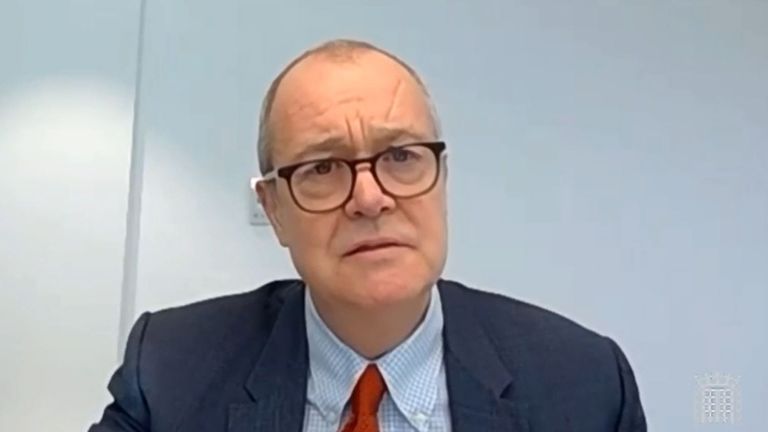This was a double act in caution.
While we, the public, celebrate the start of a return to a more normal life, it’s clear that the government’s two top advisers on the pandemic are losing sleep over what could go wrong.
Professor Chris Whitty, the chief medical officer, told a parliamentary inquiry that there were “big blocks of risk” being taken each time more of society re-opened.
Live updates on COVID from the UK and around the world
And Sir Patrick Vallance, the chief scientist, peppered his evidence to the Science and Technology Committee with warnings that cases could quickly spike once more if lockdown was lifted too quickly.
It’s easy to get light-headed with the arrival of spring. Everything feels so much better now than in the gloom of January.
Daily cases are about one-tenth of their peak, hospitals are resuming normal activity, and the vaccine rollout has been an unqualified success.
The over-50s will have had at least one jab by the end of March.
They’ll have some immunity by the time non-essential retail opens, and pubs and restaurants start outdoor service, on 12 April.
But Prof Whitty warned the vaccine is not a “get out of jail free card”.
It is people under the age of 60 who are most likely to drive transmission of the virus – people who, by and large, won’t be immunised until later in the spring and early summer.
A rise in cases would put at risk older people who don’t have immunity even after both doses.
The vaccines are good, but not perfect. There will still be deaths; how many depends on the spread of the virus.
Sir Patrick also urged caution.
Subscribe to the Daily podcast on Apple Podcasts, Google Podcasts, Spotify, Spreaker
He said the government had “broadly” taken the advice of the Scientific Advisory Group for Emergencies (SAGE) advisory committee.
Indoor contact is being delayed until more people have been vaccinated. And there is a five-week gap between each step so any rise in transmission has time to show up in the data.
The reality is that more than a year into the pandemic there still isn’t good evidence on precisely how much each of the social distancing measures reduces transmission.
So the lifting of lockdown will be slow and cautious and the impact measured at every stage.
But it’s worth heeding the warnings of the experts. If we race towards freedom we could easily trip up.


